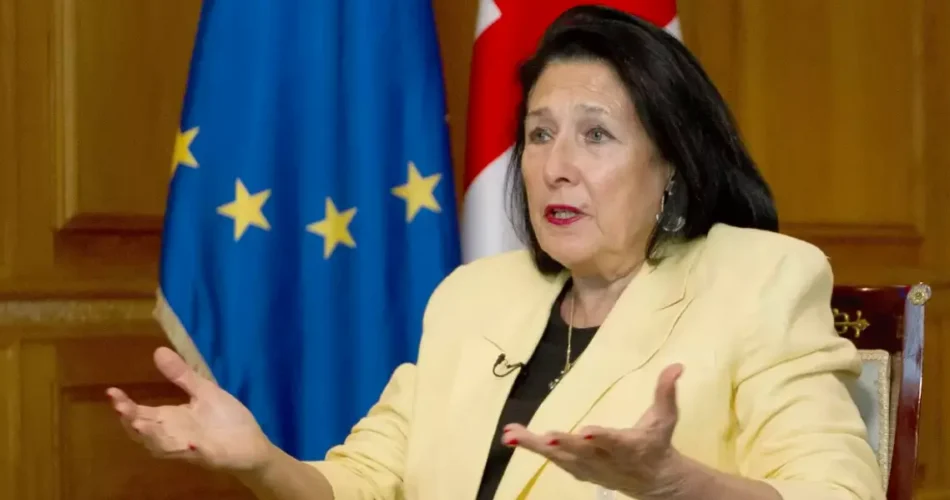TIFLIS, Georgia – Georgian President Salome Zourabichvili on Saturday vetoed a so-called “Russian law” targeting the media that has been met with massive protests for weeks.
The proposed law would force the press and non-governmental organizations to register as institutions “pursuing the interests of a foreign power” if they receive more than 20% of their funding from abroad. Critics of the bill say it closely resembles legislation used by the Kremlin to silence opponents, and will hamper Georgia’s bid to join the European Union.
Zourabichvili, who is increasingly opposed to Georgian Dream – Georgia’s ruling party – said Saturday that the bill contradicts his country’s constitution as well as “all European standards,” adding that it “must be abolished.”
Georgian Dream has a sufficient majority to override Zourabichvili’s veto, and is expected to do so in the coming days.
The Georgian government insists that the proposed law is intended to promote transparency and curb what it sees as harmful foreign influence in the country of 3.7 million people. Many Georgian journalists strongly disagree with this characterization, and say they are already subject to audit and oversight requirements. They point out that the real aim of the draft law is to stigmatize them and restrict debate ahead of parliamentary elections scheduled for October.
The EU offered Georgia candidate status last December, although it made clear that Tbilisi must implement key recommendations on certain policies for its bid to move forward. The recommendations relate to, among other things, holding free and fair elections, combating disinformation “against the EU and its values,” and safeguarding the independence of public institutions such as the central bank and anti-corruption bodies.
The opposition United National Movement and many protesters accuse Georgian Dream of trying to bring down the EU integration process, and of dragging Georgia into the sphere of Russian influence, accusations that the ruling party vehemently rejects. Georgian Dream was founded by Bidzina Ivanishvili, a former prime minister and billionaire who made his fortune in Russia.

